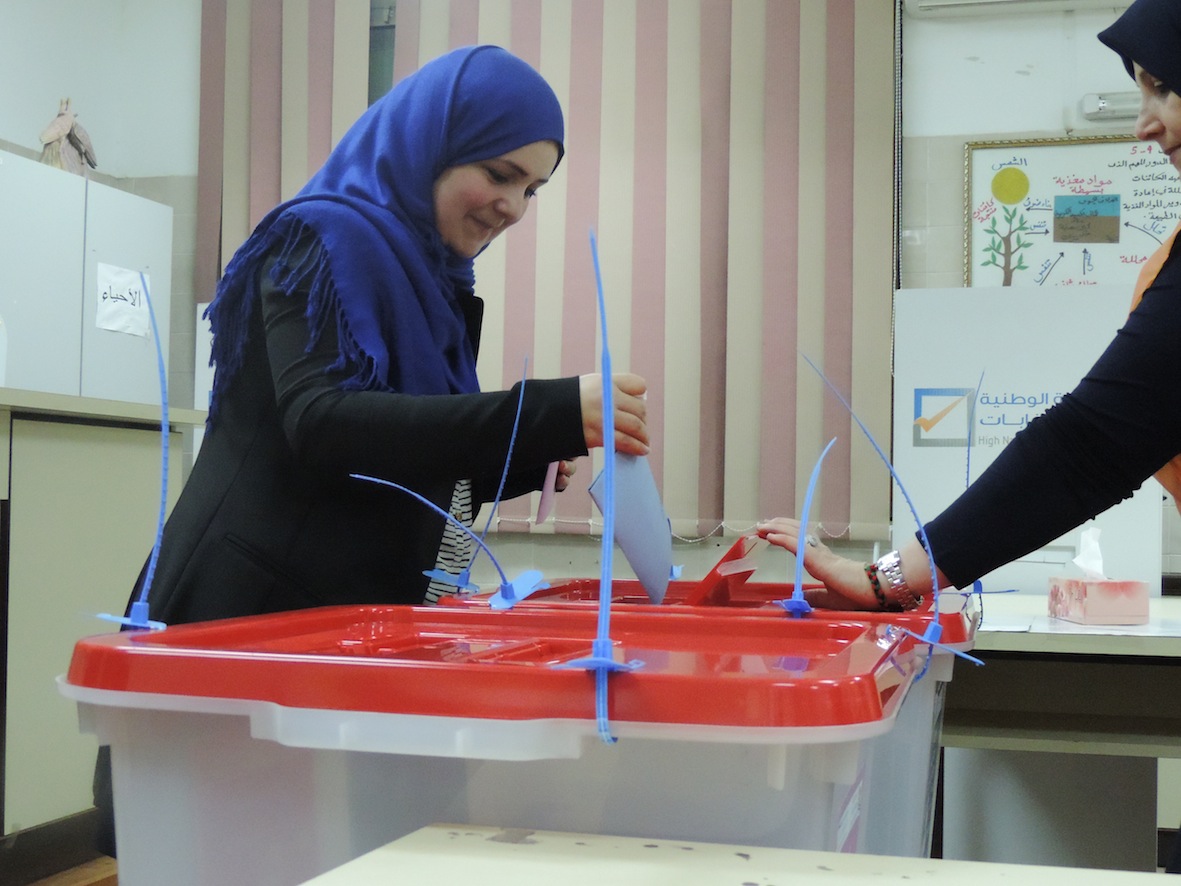By Ahmed Elumami.

Tripoli, 20 February 2014:
Under an overcast sky and the threat of rain, the doors of polling station No.14180 in . . .[restrict]Sarkhet Al-Huriya School in Tripoli’s Shara Suraim opened at 8am this morning for the elections to the Committee that is to draw up Libya’s new constitution.
A member of the polling station staff, Mahmoud Abdulwahed Al-Shamakhi, told the Libya Herald that 1,666 people were registered to vote there. By around 11 am some 180 women and 248 men had cast their votes.
Shamakhi explained the procedure. Each voter has first to check his or her name on list of the registered voters of the polling station. Then they present their identity card and sign the register list against their name.
The station being in one of the two Tripoli sub-constituencies where there is a women’s candidate list as well as the general list, the voter is then handed two ballot papers, Shamakhi explained, a pink one for the women’s list and one for the general candidates, who are all male. The latter is predictably blue.
(In places where there is also a Tebu or Tuareg list of candidates – obviously not in Tripoli – the blue paper has two columns, one for the ethnic candidates, the other for the general candidates. Voters can vote for only one candidate but from either column. An Arab can vote for a Tebu candidate if he wants, or a Tebu for an Arab – not that many Tebus were expected to vote. They opted for a boycott of the elections at the beginning of the week.)
Back in Tripoli, Shamakhi explained, once the voter has the two ballot papers, he or she makes the choice in the voting booths. No cameras or mobile phones are allowed to be used while voting.
Then the voter has to dip his or her index finger in ink to prevent multiple voting and once that is done, deposits the two ballot papers in separate ballot boxes, overseen by a member of the polling staff.
Slowly the voters came in and did their democratic duty at Sarkhet Al-Huriya School.
Among those voting, many appeared to have already made their choice. One voter told how he had voted for a candidate on the women’s list because he knew about her but had not voted for anyone on the general list. “I did not know anything about any of them.”
“I am happy and afraid at the same time,” said another voter, pharmacist Naziha Ali Salam, after casting her vote. It was easy for me to vote,” she said, “because I’ve known the candidate since we were kids together”. What worried her was that “some voters may vote for the wrong people”. On the whole, though, she was optimistic she said.
Khaled Mohamed, waving his blue index finger, told this paper that he had voted to demonstrate his rejection of the old regime and participate in rebuilding the new Libya.
Both Mohamed and Salama said they new Committee had to meet the public demands and write a constitution in that addressed the rights of all Libyans.
But it was not all calm and optimism. At one point, an angry youth man who was waiting for a friend, who was casting his vote, launched an outburst against elections in general and today’s poll in particular. He was not going to vote, he shouted at bemused staff. He had made a mistake voting for the General National Congress and he was not going to make the same mistake ever again.
“They’re going to steal Libyan money and they’ll waste time just looking after their own interests” the young man railed. Attempts to convince him that the Committee was merely writing a constitution and not in charge of budgets and money, failed to convince. Given the slow turnout, he may have been speaking for many determined non-voters. [/restrict]







